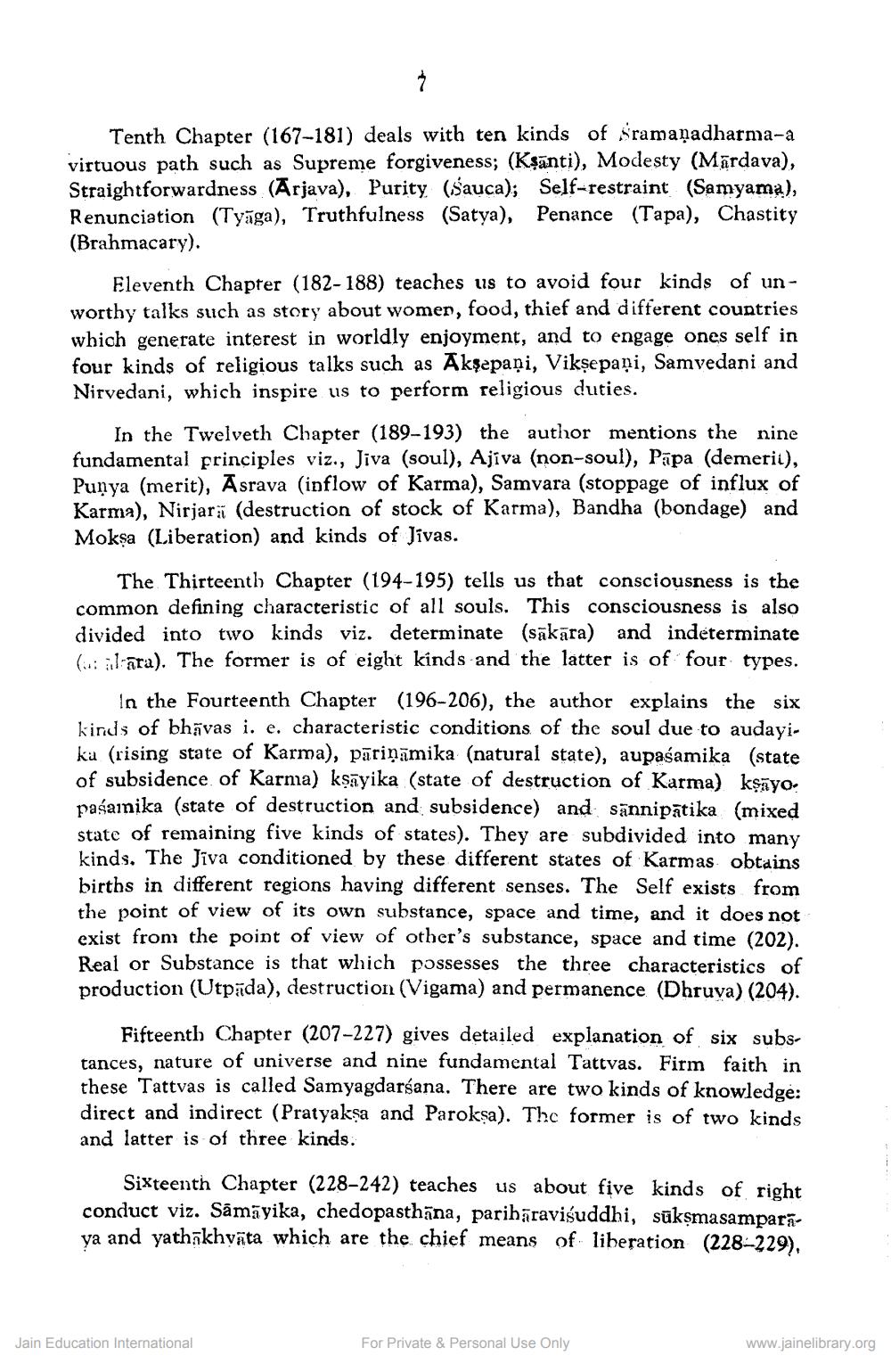________________
Ź
Tenth Chapter (167-181) deals with ten kinds of Sramanadharma-a virtuous path such as Supreme forgiveness; (Ksanti), Modesty (Mardava), Straightforwardness (Arjava), Purity (Sauca); Self-restraint (Samyama), Renunciation (Tyaga), Truthfulness (Satya), Penance (Tapa), Chastity (Brahmacary).
Eleventh Chapter (182-188) teaches us to avoid four kinds of unworthy talks such as story about women, food, thief and different countries which generate interest in worldly enjoyment, and to engage ones self in four kinds of religious talks such as Aksepani, Vikṣepani, Samvedani and Nirvedani, which inspire us to perform religious duties.
In the Twelveth Chapter (189-193) the author mentions the nine fundamental principles viz., Jiva (soul), Ajiva (non-soul), Papa (demerit), Punya (merit), Asrava (inflow of Karma), Samvara (stoppage of influx of Karma), Nirjar (destruction of stock of Karma), Bandha (bondage) and Mokṣa (Liberation) and kinds of Jivas.
The Thirteenth Chapter (194-195) tells us that consciousness is the common defining characteristic of all souls. This consciousness is also divided into two kinds viz. determinate (sākāra) and indeterminate (lara). The former is of eight kinds and the latter is of four types.
In the Fourteenth Chapter (196-206), the author explains the six kinds of bhavas i. e. characteristic conditions of the soul due to audayika (rising state of Karma), pariņāmika (natural state), aupaśamika (state of subsidence of Karma) kṣayika (state of destruction of Karma) kṣayo. pasamika (state of destruction and subsidence) and sannipatika (mixed state of remaining five kinds of states). They are subdivided into many kinds. The Jiva conditioned by these different states of Karmas obtains births in different regions having different senses. The Self exists from the point of view of its own substance, space and time, and it does not exist from the point of view of other's substance, space and time (202). Real or Substance is that which possesses the three characteristics of production (Utpada), destruction (Vigama) and permanence (Dhruva) (204).
Fifteenth Chapter (207-227) gives detailed explanation of six substances, nature of universe and nine fundamental Tattvas. Firm faith in these Tattvas is called Samyagdarśana. There are two kinds of knowledge: direct and indirect (Pratyakṣa and Parokṣa). The former is of two kinds and latter is of three kinds.
Sixteenth Chapter (228-242) teaches us about five kinds of right conduct viz. Samayika, chedopasthana, pariharaviśuddhi, sūkṣmasamparā ya and yathōkhvāta which are the chief means of liberation (228-229),
Jain Education International
For Private & Personal Use Only
www.jainelibrary.org




